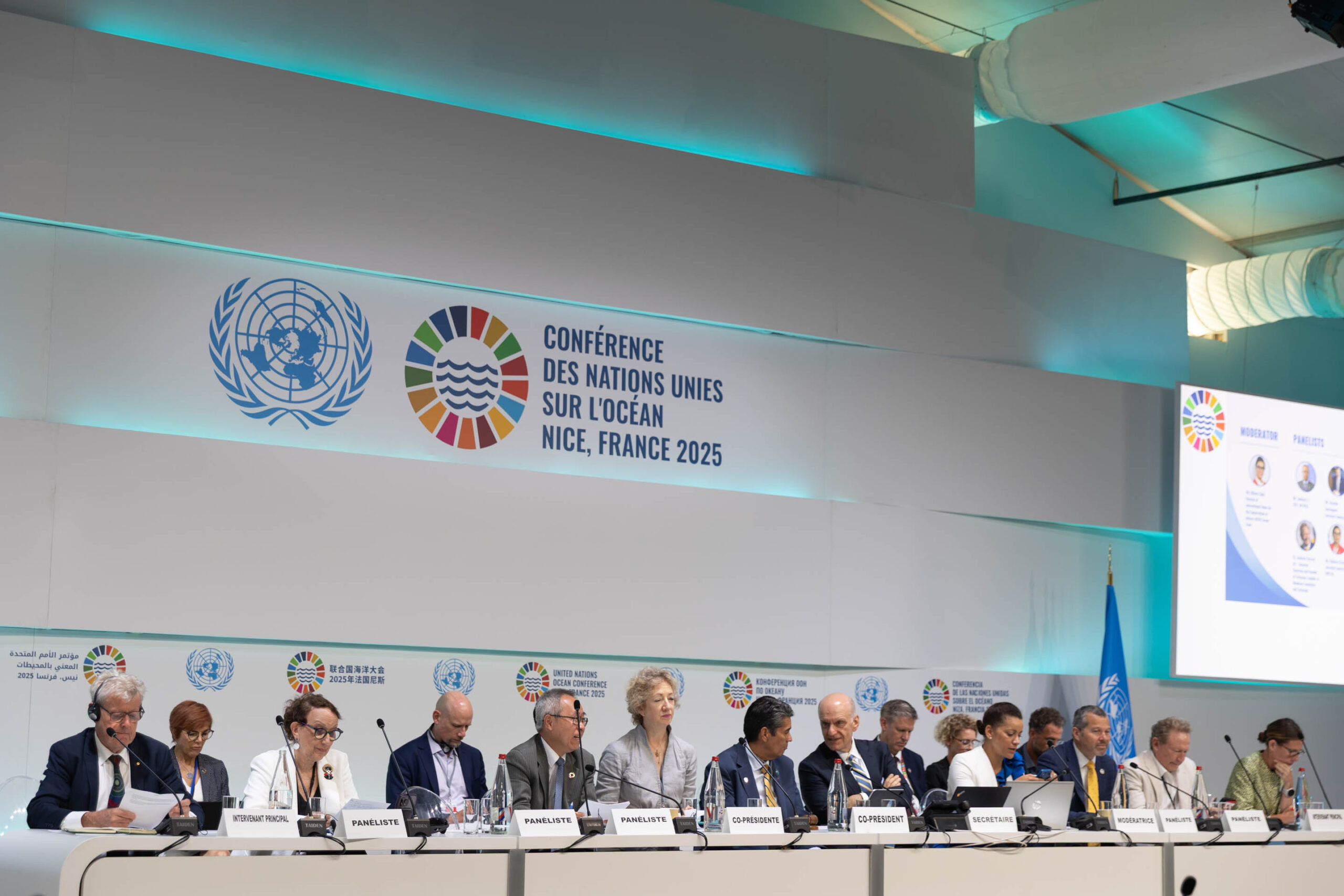UNOC3: From pledges to progress on ocean protection

3rd UN Ocean Conference © UNCTAD / Creative Commons
24.06.2025
The third United Nations Ocean Conference (UNOC3) held earlier this month in Nice, France, marked a turning point in marine conservation, shifting from rhetoric to tangible action. With over 150 states represented, including more than 60 Heads of State and Government, the June 2025 summit delivered meaningful progress on ocean protection, high seas governance and fisheries reform – albeit with some notable gaps.
The conference’s outcome, known as the Nice Ocean Action Plan, is a two-part framework that comprises a political declaration and over 800 voluntary commitments by governments, scientists, UN agencies, and civil society. This was supported by roughly $12–13 billion in financial pledges, and is up from the $1 billion announced after the previous UNOC in Lisbon – although it’s still a long way from the at least $175 billion needed annually to fully secure ocean health.
The headline demand was a full ban on bottom trawling in Marine Protected Areas (MPAs), and while the conference succeeded in pushing it into the global media spotlight, national-level commitments delivered mixed results. Notably, French President, and co-host, Emmanuel Macron stopped short of the expected outright ban and opted instead for partial restrictions within a small number of France’s MPAs.
Yet in a surprising move, the UK launched a consultation expected to lead to bans on bottom-trawling in 41 English MPAs, potentially covering half of its protected marine waters.
Other countries also stepped up:
- Portugal announced a vast new protected zone around the Gorringe Bank, edging closer to its 30% ocean protection target.
- Spain committed to protecting over a quarter of its waters by 2025, with 40 new management plans in the pipeline.
- Denmark advanced legislation to ban destructive fishing practices across 17,000 km² of its MPAs.
- Chile committed to expanding the Juan Fernández MPA, adding 350,000km² of protection and taking the country’s Exclusive Economic Zone protection over 50%, one of the highest in the world.
- French Polynesia topped the headlines, unveiling the largest protected marine zone globally, of about 5 million km², with significant restrictions on destructive practices.
Perhaps the most significant outcome was a surge in momentum behind the High Seas Treaty (BBNJ), with ratifications jumping from 32 to 50. With 60 countries required for enactment, the treaty is now expected to come into force by the end of 2025, paving the way for the first high seas COP in 2026 and, potentially, the first high seas MPAs before 2030. Grantees of ERF partner Oceans 5 played a pivotal role in accelerating ratifications of the High Seas Treaty, not only by raising global awareness but also by providing targeted financial and technical support to developing nations – particularly in the areas of policy development and capacity building.
Quietly but crucially, the treaty on curbing harmful fisheries subsidies is also now nearing activation – an overlooked but vital win. Once in effect, this treaty will ban subsidies that support illegal, unreported and unregulated (IUU) fishing, as well as those tied to overfished stocks and fishing in unregulated high seas.
World leaders also renewed calls for a global moratorium on deep-sea mining. This comes at a crucial time as the U.S. moves to mine the deep sea in international waters under its own controversial authority. Four additional countries have joined the coalition of nations calling for a moratorium, precautionary pause, or ban on deep-sea mining, bringing the total number to 37.
Despite the summit’s achievements, it was also clear how much is yet to be done. A study by National Geographic Pristine Seas and Dynamic Planet found that to hit the 30×30 target, the world would need to create 85 new marine protected areas daily. So far, less than 3% of the ocean is highly protected.
Laura Clarke, CEO of ERF grantee Client Earth concluded: “We’ve come out of this week with a renewed sense of unity around the ocean… [But] Pledges on paper mean nothing if ocean ecosystems are still being ripped up by bottom trawlers. The EU Court made it clear – sensitive Marine Protected Areas need to be protected from bottom trawling. The UK’s announcement on bottom trawling is a major win but this still needs to be confirmed and properly implemented so that protected really means protected.”
Still, with record media coverage and mounting public awareness, UNOC3 has undeniably moved ocean issues into the global mainstream – and set a faster course for the years ahead.